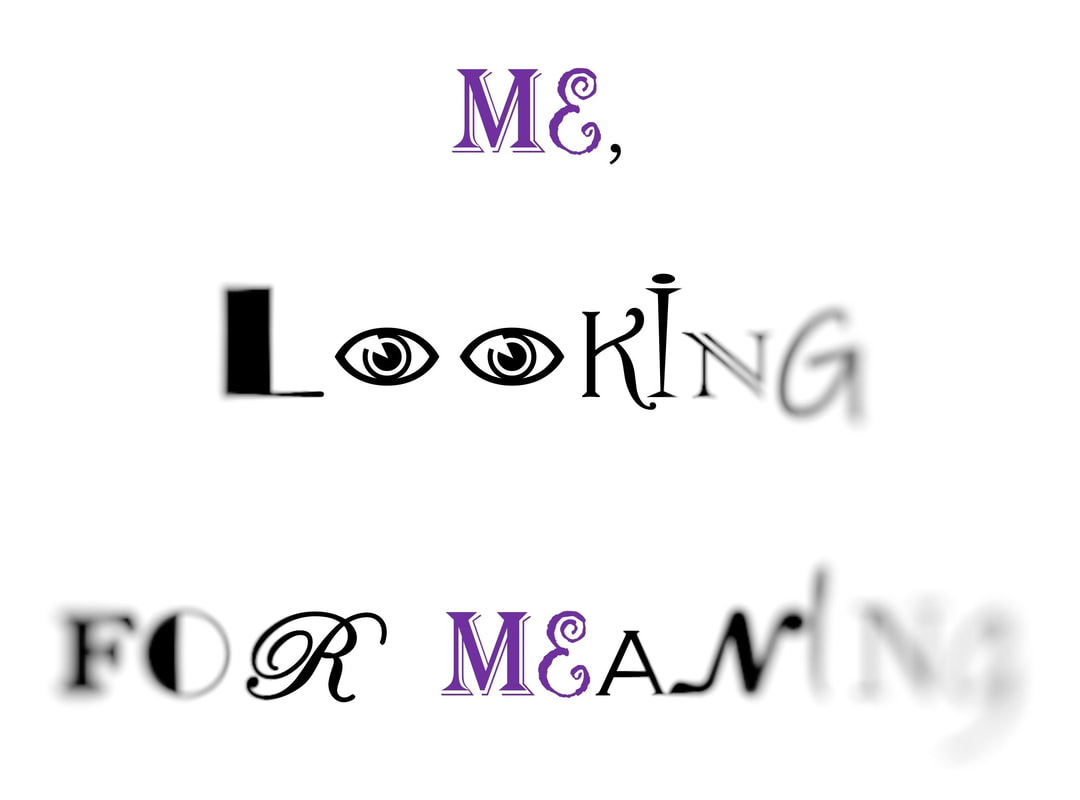What's the Point?

We can probably all agree that "What's the point?" is not a happy question. If it occupies our mind so much that we are not even able to get out of bed and proceed with our lives, doctors call this condition "depression". It's difficult to find motivation if we don't feel that anything we do have a purpose.
Even if we don't struggle with depression or a similar mental illness, this question lurks in our heads once in a while, especially when we are tired and upset. It's what we wonder what things are going wrong. In contrast, we are content when our efforts pay off and our activities seem to contribute to some bigger goal. Knowing "what the point is" appears to be a prerequisite of happiness.
By taking a closer look, we can see that the dreaded question is about meanings that we ascribe to our actions and to their context. A response we choose depends on ideas, thoughts, associations, interpretations and assumptions that exist in our heads. And because all of those are not natural or absolute, our answer will be subjective and subject to change according to circumstances we are dealing with. This explains why, on bad days, our life may seem meaningless, while on good days we will be able to find our purpose again.
The answer to the "What's the point?" question will be different for different people according to their backgrounds and experiences. Small children are often motivated by the goal of having fun and being loved by their parents. As people grow, a meaningful life is increasingly determined by groups and collectives they associate themselves with. An individual's motivation changes throughout her life, depending on values she chooses, things she learns and meaning communities she joins. One person can be motivated by the urge to afford a certain quality of life and image. Another individual may be driven by the quest for truth or by the need to promote what they consider to be true and important. One's motivation can be self-oriented (e.g., become famous) or altruistic (e.g., save the environment); it can be vague (e.g., make a difference) or specific (e.g., raise happy children).
Despite this variety, one thing is clear: we want our life to have a point. One possible explanation for this is provided by Terror Management Theory (Solomon, Greenberg, & Pyszczynski, 2015). All human beings fear death - consciously or unconsciously. This fear finds manifestations in the need to feel that our existence is meaningful. Specific ways we find meaning (i.e., point or purpose) of our life differ. However, what we have in common is that most of us want to see how different activities we do contribute to the overarching purpose of life that we consciously or unconsciously chose. When we are caught in routines and their stresses, keeping the eye on the bigger goal may become increasingly difficult. That's when the "What's the point?" question becomes more prominent, leading to dissatisfaction.
Because people's backgrounds and circumstances are so different, understanding each other's motivation can be a problem. It is easy to assume that, when somebody does something we dislike, this person is "just mean" or "just stupid". In other words, it is easy to assume that another person's actions are pointless. But this is most likely not the case. By ignoring the point of another person's actions, we lose an opportunity of having a deeper conversation. If it is true that the purpose of life helps us overcome the fear of death, ignoring or diminishing a person's purpose is likely to prevent this person from having a dialogue with us.
SOURCES:
Solomon, S., Greenberg, J., & Pyszczynski, T. (2015). The worm at the core: On the role of death in life. Random House.
About this project: Start page
Even if we don't struggle with depression or a similar mental illness, this question lurks in our heads once in a while, especially when we are tired and upset. It's what we wonder what things are going wrong. In contrast, we are content when our efforts pay off and our activities seem to contribute to some bigger goal. Knowing "what the point is" appears to be a prerequisite of happiness.
By taking a closer look, we can see that the dreaded question is about meanings that we ascribe to our actions and to their context. A response we choose depends on ideas, thoughts, associations, interpretations and assumptions that exist in our heads. And because all of those are not natural or absolute, our answer will be subjective and subject to change according to circumstances we are dealing with. This explains why, on bad days, our life may seem meaningless, while on good days we will be able to find our purpose again.
The answer to the "What's the point?" question will be different for different people according to their backgrounds and experiences. Small children are often motivated by the goal of having fun and being loved by their parents. As people grow, a meaningful life is increasingly determined by groups and collectives they associate themselves with. An individual's motivation changes throughout her life, depending on values she chooses, things she learns and meaning communities she joins. One person can be motivated by the urge to afford a certain quality of life and image. Another individual may be driven by the quest for truth or by the need to promote what they consider to be true and important. One's motivation can be self-oriented (e.g., become famous) or altruistic (e.g., save the environment); it can be vague (e.g., make a difference) or specific (e.g., raise happy children).
Despite this variety, one thing is clear: we want our life to have a point. One possible explanation for this is provided by Terror Management Theory (Solomon, Greenberg, & Pyszczynski, 2015). All human beings fear death - consciously or unconsciously. This fear finds manifestations in the need to feel that our existence is meaningful. Specific ways we find meaning (i.e., point or purpose) of our life differ. However, what we have in common is that most of us want to see how different activities we do contribute to the overarching purpose of life that we consciously or unconsciously chose. When we are caught in routines and their stresses, keeping the eye on the bigger goal may become increasingly difficult. That's when the "What's the point?" question becomes more prominent, leading to dissatisfaction.
Because people's backgrounds and circumstances are so different, understanding each other's motivation can be a problem. It is easy to assume that, when somebody does something we dislike, this person is "just mean" or "just stupid". In other words, it is easy to assume that another person's actions are pointless. But this is most likely not the case. By ignoring the point of another person's actions, we lose an opportunity of having a deeper conversation. If it is true that the purpose of life helps us overcome the fear of death, ignoring or diminishing a person's purpose is likely to prevent this person from having a dialogue with us.
SOURCES:
Solomon, S., Greenberg, J., & Pyszczynski, T. (2015). The worm at the core: On the role of death in life. Random House.
About this project: Start page
